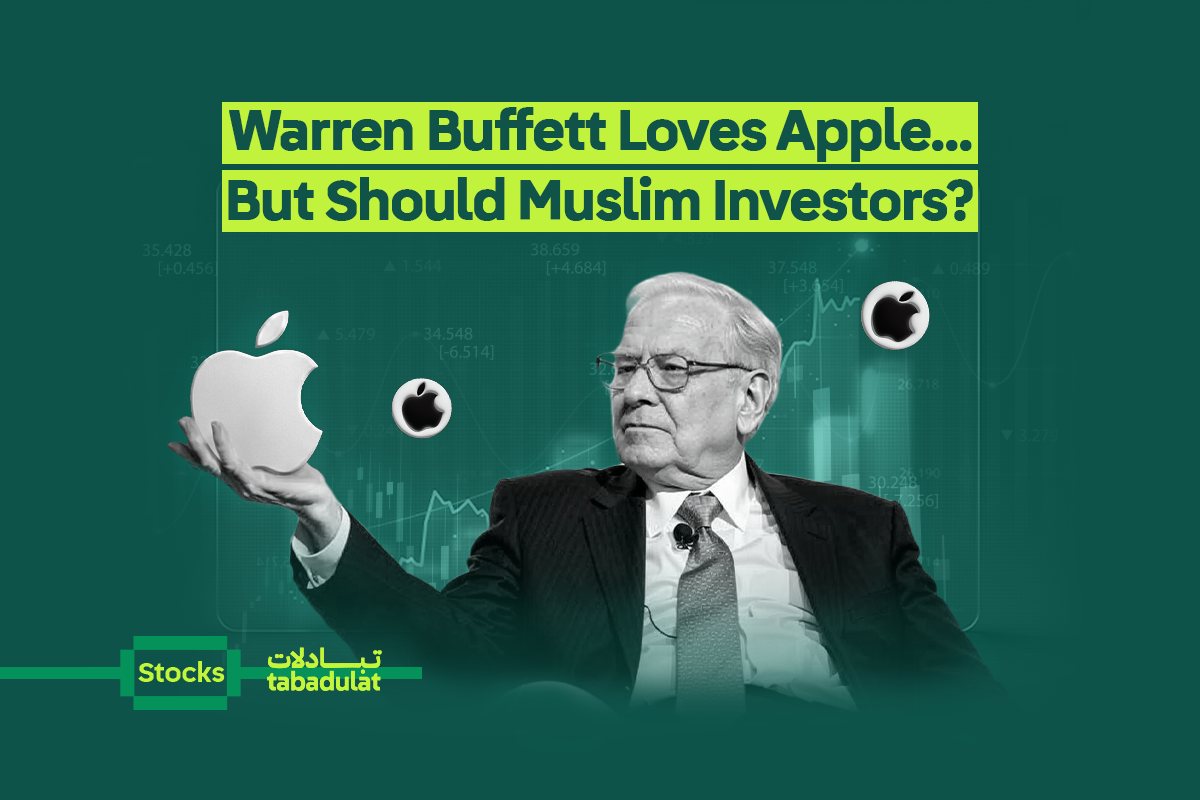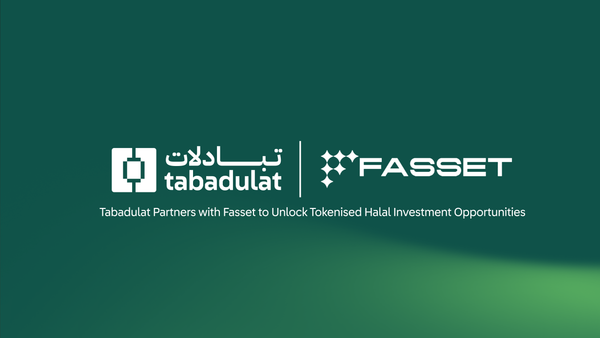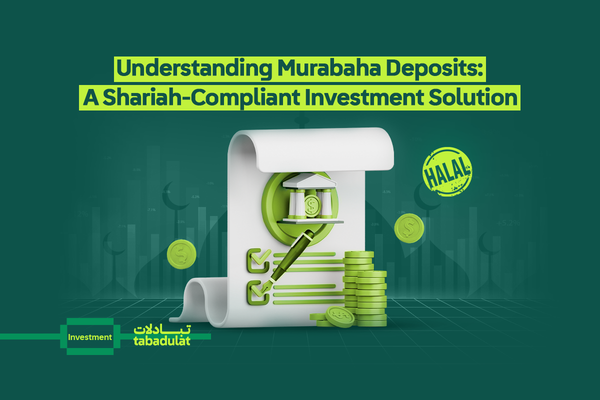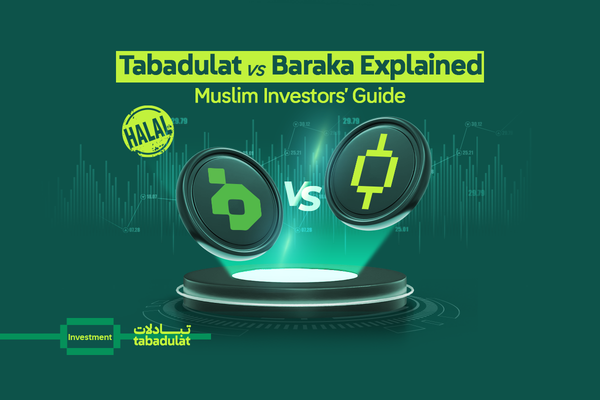Buffett Loves Apple Stocks... Should Muslim Investors?
Is Apple stock halal? This article explores Warren Buffett’s favourite pick through the lens of Islamic finance, analysing Apple’s Shariah compliance, financial ratios, and how Muslim investors can screen it using tools like Tabadulat.

Warren Buffett is famous for his massive investment in Apple. His company, Berkshire Hathaway, has invested over $187 billion in just five stocks, with Apple being the largest.
But for Muslim investors who follow Halal guidelines, one question stands out: Is Apple a Shariah-compliant stock? While many investors follow Buffett's lead, faith-based investing requires a different lens, one shaped by Islamic scholars, ethical concerns, and financial institutions that uphold Shariah standards.
In this article, we'll examine Apple's business through the lens of Islamic finance principles, explore its performance in Shariah screening, and explain why every Muslim investor needs a trusted halal stock screener before investing in popular Wall Street names.
For a refresher on AAOFI standards read our blog AAOIFI Standards Explained: What Makes a Stock Halal?
Business Analysis: Apple's Operations and Growth Drivers
Apple Inc. (AAPL) is more than just a tech giant; it's a global ecosystem builder. The company designs, manufactures, and markets smartphones, computers, wearables, and services, operating in over 100 countries.
In Q2 2025, Apple reported a resounding $95.4 billion in revenue, beating analyst expectations thanks to the integration of artificial intelligence (AI) into its product lines and robust supply chain shifts to the U.S. and Vietnam.
Three key themes shape Apple's current momentum:
1. AI-Driven Upgrade Cycle
With the launch of M3 chip Macs and AI-powered iPads, Apple is fueling strong consumer demand while expanding its developer ecosystem. This enhances its position in the broader tech landscape, making it a long-term contender in AI-driven investment strategies.
2. Supply Chain Resilience
By gradually shifting manufacturing out of China, Apple is reducing geopolitical risks and creating a more stable supply chain, a vital point for investors wary of unpredictable global tensions.
3. Services Growth
Apple's services, including the App Store, iCloud, and Apple Music, are becoming a reliable engine of recurring revenue. These offerings form a robust type of investment that adds predictability to its income stream.
Yet, despite this strong performance, Apple's stock has declined 18% year-to-date. Some see this as a buying opportunity. Major financial institutions like Bank of America still label Apple a "buy the dip" stock, citing its innovation edge, cash flow strength, and global reach.
But for Muslim investors, ethical alignment is as important as economic performance. That means avoiding companies heavily involved in alcohol, gambling, or charging interest, even if they appear financially strong.
The Shariah Compliance Review: How Does Apple Stack Up?
Apple stock is currently Shariah-compliant according to our latest screening using AAOIFI standards, the gold standard for Islamic investing used by Islamic financial institutions around the world.
Business Activity
Apple's core business designing and selling hardware, software, and digital services is halal. This includes devices like iPhones, MacBooks, wearables, and subscriptions to platforms like Apple Music and iCloud.
However, the App Store is a grey area. It includes apps with haram content (like gaming, dating, or interest-based services), but these apps contribute only a minor share to the overall revenue. Under AAOIFI, if the haram income is less than 5%, the stock can still be considered compliant.
Apple does not derive direct revenue from financial products, savings accounts, or conventional banking activities, which means its core activities remain within the Shariah-acceptable zone.
Financial Ratios
Apple stays within the main AAOIFI Shariah thresholds: its interest-bearing debt does not exceed 30% of its market capitalization, its haram (interest-based) income remains under 5% of total revenue, and its interest-earning investments are also below the 30% cap. Despite its substantial cash reserves and occasional bond activity, Apple’s financial structure remains aligned with Shariah-compliant investment principles.
How Faith-First Investors Can Stay Ahead
Apple may pass today, but Compliance can change tomorrow. A new product launch, acquisition, or financial restructuring could shift its standing.
Many Muslim investors make the mistake of relying on outdated halal stock lists or annual reports from Shariah advisory firms. But Compliance needs real-time monitoring, especially with companies as dynamic as Apple.
That's why platforms like Tabadulat exist, giving investors a free, up-to-date Halal stock screener based on AAOIFI rules. It doesn't just tell you if a stock is halal, it explains why. It also flags purification requirements, so if a small portion of your dividends is derived from paying interest, you can donate that portion accordingly.
For those building retirement plans, investment funds, or simply managing long-term portfolios, a faith-conscious screening tool is indispensable.
What Apple Teaches Us About Halal Investing
Buffett's approach is often rooted in long-term value and fundamental strength, principles that overlap with Islamic finance. But Halal investing goes further.
It not only asks whether the company is profitable, but also whether that profit is earned ethically and Islamically. It challenges you to ask: Am I profiting from something that promotes or benefits haram industries?
That's why many Shariah-focused investors also explore sukuk and Shariah-compliant ETFs, which offer broader exposure to vetted stocks while diversifying away from specific legal or business risks. For example, Sukuk avoids charging interest by offering fixed-income through asset-based models, backed by tangible goods and services, not debt.
Conclusion: Faith-First, Not Follower-First
Warren Buffett may love Apple, and the numbers may support him. But as Muslim investors, our approach demands more than just strong balance sheets. It requires alignment with Shariah principles, ethically, financially, and spiritually.
That means checking:
- Does this company avoid Riba?
- Is its business model fundamentally halal?
- Is it compliant with AAOIFI rules?
- Are the ratios within range and being monitored regularly?
Apple checks all the boxes today. But tomorrow is never guaranteed. That's why you need tools that reflect Islamic financial institutions' guidance, not just Wall Street sentiment.
If you're unsure, consider spreading risk via Halal ETFs or profit and loss sharing investments. These vehicles often meet stricter ethical standards and offer built-in diversification, while remaining rooted in Islamic values.
Key Takeaways
- Apple is currently Shariah-compliant using AAOIFI standards.
- Its business activities (hardware/software/services) are halal.
- All financial ratios (debt, interest, cash) fall within Islamic thresholds.
- The App Store has incidental haram content, but within acceptable limits.
- Compliance can shift quarterly, so constantly monitor using trusted sources.
- Apple remains a strong performer in the tech world, but halal investing means we screen by faith first, not headlines.
Whether you're just beginning your journey in halal investing or building a diversified Islamic portfolio, it's crucial to use a dedicated halal stock screener that aligns with AAOIFI standards. This ensures your investment decisions are rooted in Shariah-compliant investing and guided by qualified Islamic scholars. Unlike conventional tools that often overlook Compliance, a halal screener helps monitor total assets, interest income, and exposure to sectors like alcohol, gambling, or charging interest, areas strictly forbidden in Islamic finance.
Tools like Tabadulat were built with the needs of Muslim investors in mind. We work closely with global Islamic financial institutions to screen thousands of stocks and investment funds in real time. Whether you're planning for retirement plans, seeking exposure to a Halal ETF, or evaluating a new type of investment, Tabadulat's platform supports you with full transparency.
As financial institutions expand their ethical offerings, many are integrating profit sharing, interest-free products, and financial system reforms to meet demand from the Middle East and beyond. Always consider the principles of Islamic banking and review any financial product against Shariah criteria before committing your capital.
FAQs
Is Apple a Shariah-compliant investment?
Yes. Apple's business model and financials currently meet AAOIFI standards. But its Compliance should be reviewed regularly. Use Halal Stock Screeners like Tabadulat to screen in real time for free.
How can I ensure my investment in Apple remains Halal?
Use a halal stock screener like Tabadulat to track quarterly updates and receive alerts when a company becomes non-compliant.
What are the risks of investing in Apple for Halal investors?
Risks include a future rise in interest income, legal pressures around its App Store, and shifts in its financial structure that could violate Shariah compliance.
Why should Muslim investors consider Halal ETFs?
They offer diversified, Shariah-compliant exposure to vetted stocks, reducing the need to track individual Compliance and aligning with profit and loss sharing models.
Are Apple Stocks Halal?
Yes apple stock is shariah compliant but its Compliance should be reviewed regularly. Use Halal Stock Screeners like Tabadulat to screen in real time for free.
Is Apple part of any Halal mutual funds or ETFs?
Yes, several Islamic mutual funds and investment funds include Apple due to its strong fundamentals and current compliance status. Use a Halal Stock Screen like Tabadulat for free to find them.




